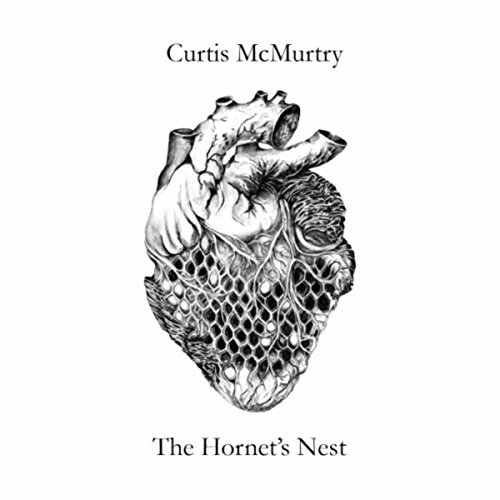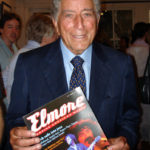Artist: Curtis McMurtry
Album: The Hornet’s Nest
Label: Self Released
Release Date: 02/24/2017

Austin’s Curtis McMurtry is plying completely different territory than his dad, James. How many albums do you know featuring a chamber ensemble of banjo, cello, upright bass and muted trumpet? Given the theatrical feel, the 13 tracks could seemingly come from a play. McMurtry takes this journey often in the form of duets with vocalist/cellist Diana Burgess, of Austin orchestral-pop band Mother Falcon. Nathan Calzada adds vocal harmonies to several tracks in addition to his trumpet. Bassist Taylor Turner is joined by Mike Meadows on percussion, Evan Kaspar on pedal steel, and Claire Trowbridge on bass clarinet on select tracks. It takes some concentration to appreciate what is happening here. There just aren’t many reference points, although the harmonies at times evoke early Simon & Garfunkel, especially on “Smooth As Thorns.” Echoes of Brecht and Weill color the moves of the protagonist stalker in “Tracker.”
McMurtry says, “A lot of the music I listen to is from 1950 and earlier. I actually missed a lot of rock in my musical education.” After earning a degree in musical composition and ethnomusicology from Sarah Lawrence College in New York, McMurtry spent a year in Nashville, tutored primarily by Guy Clark as he tried to write pop-country tunes. Eventually his classical/jazz inclinations prevailed and he returned to Austin to pursue a genre-free path. Along with his father and Clark, McMurtry draws his inspiration from Rufus Wainwright, Fiona Apple, Kendrick Lamar and Leonard Cohen. Musically, he points to Joao Gilberto, Django Reinhardt and classical composer Erik Satie, though Duke Ellington and Billy Strayhorn factor in as well.
For the most part, the album is shrouded in a mysterious darkness as vivid character sketches emerge and get connected somehow across the 13 tracks. All of this is done elegantly and subtly as McMurtry creates snapshots that allow the listener to eavesdrop on lovers’ arguments or vindictive diatribes. McMurtry admits, “A few of my characters are openly heartless and Machiavellian. Sometimes it’s fun to be a monster onstage.” Every so often, McMurtry lightens it up, finding some playful moments in “Love Me More” and “Shot at the Title.”
Give McMurtry credit for carving out his unique space. This album requires repeated listens. Even then, you’re likely to miss some of the craft in his lyrics and in the layers of instruments. Stay with it; it’s worth it.
—Jim Hynes







Be the first to comment!